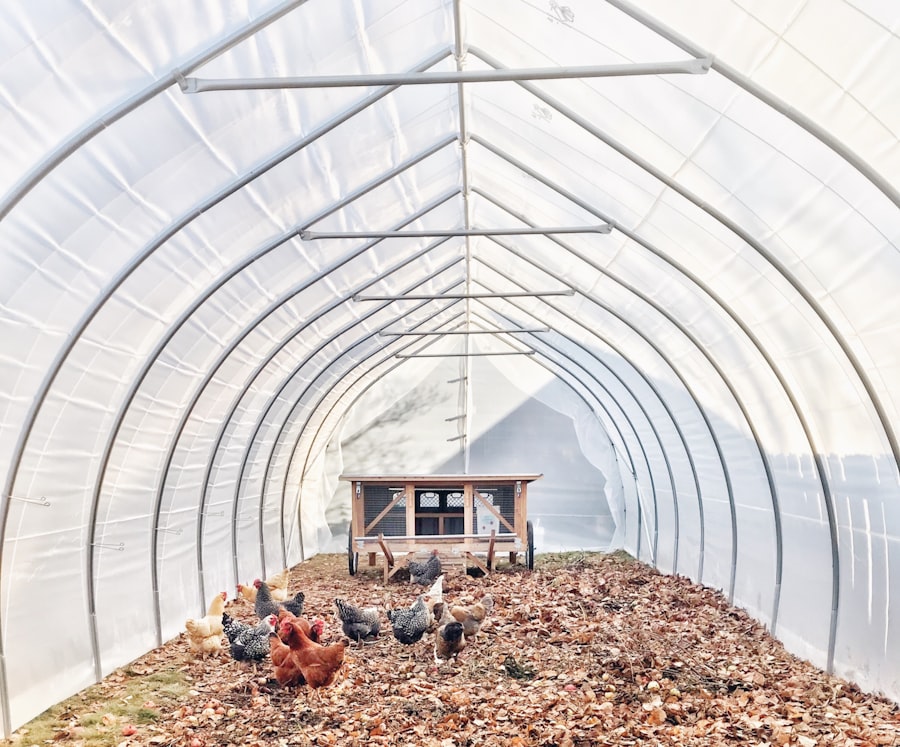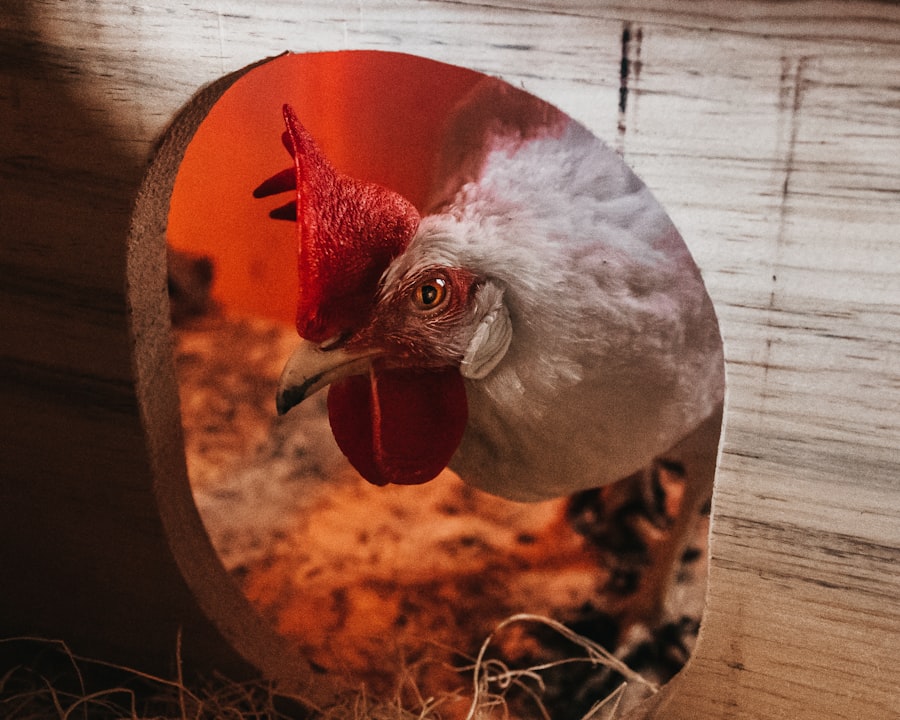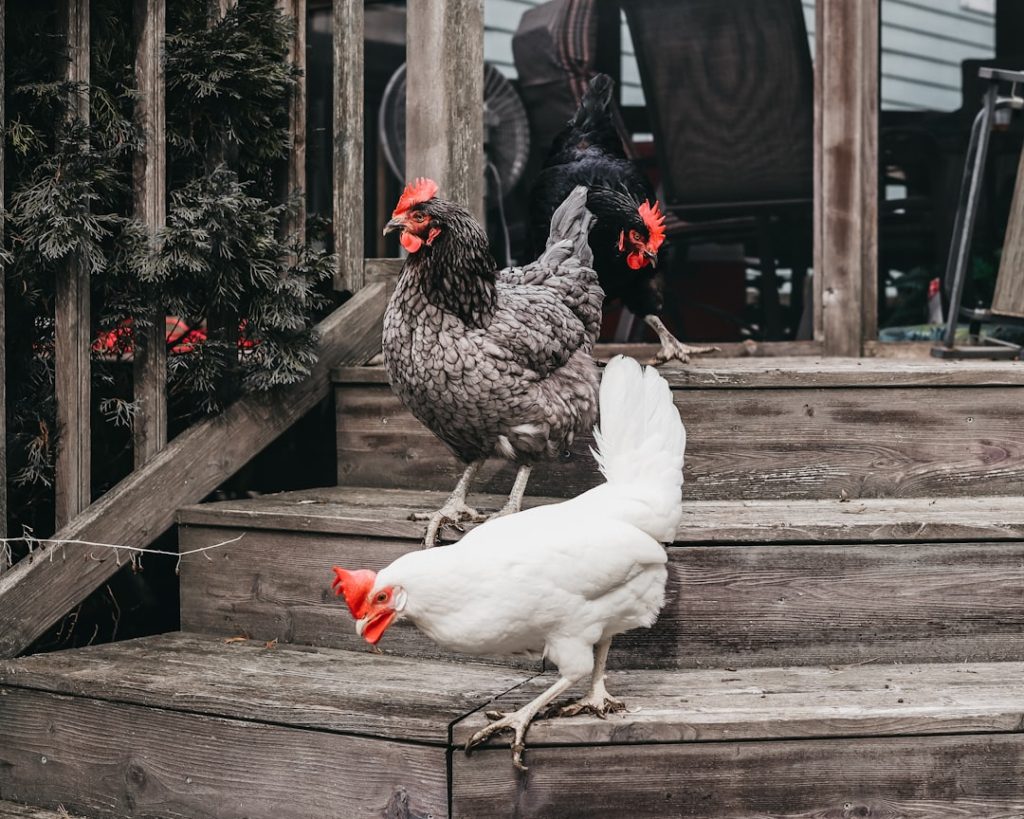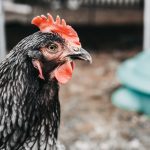Keeping chickens in residential areas has gained popularity in recent years as individuals seek sustainable living practices and local food production. However, strict regulations govern this practice to ensure chicken welfare and community safety. In the United Kingdom, the Department for Environment, Food & Rural Affairs (DEFRA) has established comprehensive guidelines for keeping chickens in residential settings.
These regulations cover various aspects of chicken husbandry, including housing requirements, welfare standards, health management, biosecurity measures, proper feeding practices, and necessary licensing. Chicken owners must familiarize themselves with these rules to ensure compliance and provide optimal care for their birds. Adherence to these regulations is essential for maintaining the well-being of the chickens and preserving harmonious relationships within residential communities.
Table of Contents
- 1 Requirements for keeping chickens in a residential area
- 2 Guidelines for chicken housing and welfare
- 3 Health and biosecurity measures for chicken owners
- 4 Regulations for feeding and caring for chickens
- 5 Licensing and registration requirements for chicken keepers
- 6 Penalties for non-compliance with DEFRA rules
- 7 FAQs
- 7.1 What are the DEFRA rules on keeping chickens?
- 7.2 Do I need to register my chickens with DEFRA?
- 7.3 What are the housing requirements for chickens according to DEFRA?
- 7.4 What biosecurity measures do I need to follow for keeping chickens?
- 7.5 Are there any specific rules for preventing diseases in chickens?
- 7.6 What should I do if I suspect a disease in my chickens?
Key Takeaways
- DEFRA rules on keeping chickens aim to ensure the welfare of chickens and minimize the risk of disease spread.
- Requirements for keeping chickens in a residential area include obtaining permission from neighbors and local authorities.
- Guidelines for chicken housing and welfare include providing adequate space, ventilation, and protection from predators.
- Health and biosecurity measures for chicken owners involve regular health checks, vaccination, and preventing contact with wild birds.
- Regulations for feeding and caring for chickens include providing a balanced diet and access to clean water at all times.
- Licensing and registration requirements for chicken keepers vary depending on the number of chickens and the purpose of keeping them.
- Penalties for non-compliance with DEFRA rules can include fines, confiscation of chickens, and legal action.
Requirements for keeping chickens in a residential area
Coop Maintenance and Space Requirements
When keeping chickens in a residential area, it is essential to maintain a clean and well-maintained coop to prevent the spread of disease and minimize odors. The coop must also provide adequate space for the number of chickens being kept, allowing them to move around freely and express natural behaviors.
Minimizing Noise and Nuisance
Noise levels must be considered, as excessive noise from crowing can disturb neighbors and lead to complaints. Chicken owners must be considerate of their neighbors and take steps to minimize any potential disturbances. Furthermore, they must ensure that their chickens are not causing a nuisance by roaming onto neighboring properties or causing damage to gardens or property.
Compliance with Local Regulations
It is crucial for chicken owners to familiarize themselves with local zoning regulations and homeowners’ association rules that govern the keeping of chickens. They must ensure that they are compliant with any additional requirements that may apply to their specific location. Failure to comply with these regulations can result in penalties and may even lead to the removal of the chickens from the property.
Responsibility and Due Diligence
By meeting these requirements, chicken owners can ensure that they are keeping their chickens in a responsible and considerate manner. It is essential for chicken owners to do their due diligence and ensure that they are meeting all local requirements for keeping chickens in a residential area.
Guidelines for chicken housing and welfare

The housing and welfare of chickens are of utmost importance when it comes to keeping them in a residential area. DEFRA has established guidelines to ensure that chickens are provided with suitable living conditions that meet their physical and behavioral needs. Chicken coops must be secure and provide protection from predators, as well as adequate ventilation and natural light.
The coop should also be insulated to provide warmth during colder months and equipped with perches and nesting boxes for the chickens to roost and lay eggs. Additionally, access to an outdoor area is essential to allow the chickens to engage in natural behaviors such as scratching, dust bathing, and foraging. Furthermore, it is important for chicken owners to regularly inspect their coops for signs of wear and tear, as well as to clean and disinfect the coop on a regular basis to prevent the spread of disease.
Providing a suitable diet is also crucial for the welfare of chickens, ensuring that they have access to fresh water and a balanced feed that meets their nutritional requirements. By following these guidelines for chicken housing and welfare, chicken owners can ensure that their feathered friends are living in comfortable and healthy conditions. On the other hand, it is important for chicken owners to be aware of the signs of illness or distress in their chickens and seek veterinary care when necessary.
Regular health checks should be conducted to monitor the well-being of the chickens and address any issues promptly. By prioritizing the welfare of their chickens, owners can ensure that they are providing a high standard of care and meeting DEFRA’s guidelines for chicken housing and welfare.
Health and biosecurity measures for chicken owners
Maintaining the health and biosecurity of chickens is essential for preventing the spread of disease and ensuring the well-being of the flock. DEFRA has established guidelines for chicken owners to follow in order to minimize the risk of disease transmission and maintain a healthy environment for their chickens. Biosecurity measures such as controlling access to the flock, disinfecting equipment, and preventing contact with wild birds are crucial for reducing the risk of disease introduction.
Additionally, regular health checks should be conducted to monitor the condition of the flock and identify any signs of illness or disease. Furthermore, it is important for chicken owners to be aware of common poultry diseases and take steps to prevent their introduction and spread. This includes vaccinating against common diseases where appropriate, as well as practicing good hygiene and sanitation measures within the coop.
By following these health and biosecurity measures, chicken owners can minimize the risk of disease outbreaks and ensure the long-term health of their flock. In addition, it is important for chicken owners to be aware of any reporting requirements in the event of a disease outbreak. Certain diseases may be notifiable, meaning that they must be reported to the authorities in order to prevent further spread.
By being aware of these reporting requirements and taking prompt action in the event of a disease outbreak, chicken owners can help to protect not only their own flock but also other poultry in the surrounding area.
Regulations for feeding and caring for chickens
Feeding and caring for chickens is an important aspect of responsible chicken ownership, and there are regulations in place to ensure that chickens are provided with a suitable diet that meets their nutritional needs. DEFRA has established guidelines for feeding chickens, which include providing access to fresh water at all times and offering a balanced feed that meets their dietary requirements. Additionally, it is important for chicken owners to monitor the body condition of their chickens and adjust their feeding regimen as needed to maintain a healthy weight.
Furthermore, it is important for chicken owners to be aware of any restrictions on feeding certain types of food waste to chickens. Certain types of food waste may be prohibited due to the risk of disease transmission or contamination, so it is important for chicken owners to familiarize themselves with these restrictions and ensure that they are compliant. In addition to feeding, caring for chickens also includes providing appropriate veterinary care when needed.
This may include routine health checks, vaccinations against common diseases, and prompt treatment of any illnesses or injuries. By meeting these regulations for feeding and caring for chickens, owners can ensure that their flock is receiving a high standard of care and meeting DEFRA’s guidelines.
Licensing and registration requirements for chicken keepers

Licensing and Registration Requirements
In addition to meeting specific guidelines for chicken housing, welfare, health, biosecurity, and feeding, chicken keepers in the UK must also comply with licensing and registration requirements. The type of license required depends on the number of chickens being kept and the purpose of keeping them, such as commercial or non-commercial.
Registration with DEFRA
For instance, if a chicken owner keeps more than 50 birds or is involved in commercial egg or meat production, they may need to register with the Department for Environment, Food and Rural Affairs (DEFRA) as a poultry keeper. This registration enables authorities to monitor poultry populations and respond quickly in the event of a disease outbreak or other emergency.
Transportation and Sales Regulations
Furthermore, there may be specific regulations governing the transportation of poultry or the sale of eggs or meat from backyard flocks. It is essential for chicken owners to familiarize themselves with these regulations and ensure they comply with any licensing or registration requirements that apply to their specific situation.
Penalties for non-compliance with DEFRA rules
Failure to comply with DEFRA rules on keeping chickens can result in penalties ranging from warnings and fines to legal action or even the removal of chickens from the property. Penalties may vary depending on the severity of non-compliance and whether it poses a risk to animal welfare or public health. For example, if a chicken owner fails to provide suitable housing or care for their chickens, they may receive a warning or be required to make improvements within a specified timeframe.
If non-compliance continues, fines may be issued or legal action may be taken. In cases where non-compliance poses a significant risk to animal welfare or public health, more severe penalties may apply. This could include legal action resulting in fines or even imprisonment if serious breaches are identified.
It is important for chicken owners to take DEFRA rules seriously and ensure that they are compliant at all times. By meeting these rules and providing a high standard of care for their chickens, owners can help to ensure the well-being of their flock while also contributing to public health and safety in their community. In conclusion, keeping chickens in a residential area comes with its own set of rules and regulations that must be followed to ensure the welfare of the birds as well as the safety of the surrounding community.
From housing and welfare guidelines to health and biosecurity measures, feeding regulations, licensing requirements, and penalties for non-compliance, there are many aspects that chicken owners must consider when embarking on this endeavor. By familiarizing themselves with DEFRA rules on keeping chickens and ensuring compliance at all times, chicken owners can provide a high standard of care for their feathered friends while contributing positively to their local community.
If you’re interested in learning more about the rules and regulations for keeping chickens, you might want to check out this article on The Chicken Coop Country Diner. It provides valuable information on how to properly care for and house your chickens in accordance with DEFRA guidelines.
FAQs
What are the DEFRA rules on keeping chickens?
DEFRA (Department for Environment, Food & Rural Affairs) has specific rules and guidelines for keeping chickens in the UK. These rules cover various aspects such as housing, biosecurity, and disease prevention.
Do I need to register my chickens with DEFRA?
If you have 50 or more chickens, you are required to register your flock with DEFRA. This is to help prevent the spread of diseases such as avian influenza.
What are the housing requirements for chickens according to DEFRA?
DEFRA requires that chicken housing provides adequate space, ventilation, and protection from predators. It should also be kept clean and free from vermin.
What biosecurity measures do I need to follow for keeping chickens?
Biosecurity measures include controlling access to your chickens, keeping equipment clean, and preventing contact with wild birds. These measures help prevent the spread of diseases.
Are there any specific rules for preventing diseases in chickens?
Yes, DEFRA has guidelines for preventing diseases such as avian influenza and salmonella in chickens. This includes measures such as vaccination, regular health checks, and proper waste management.
What should I do if I suspect a disease in my chickens?
If you suspect a disease in your chickens, you should contact a veterinarian and report it to DEFRA. They can provide guidance on how to handle the situation and prevent the spread of the disease.
Meet Walter, the feathered-friend fanatic of Florida! Nestled in the sunshine state, Walter struts through life with his feathered companions, clucking his way to happiness. With a coop that’s fancier than a five-star hotel, he’s the Don Juan of the chicken world. When he’s not teaching his hens to do the cha-cha, you’ll find him in a heated debate with his prized rooster, Sir Clucks-a-Lot. Walter’s poultry passion is no yolk; he’s the sunny-side-up guy you never knew you needed in your flock of friends!







